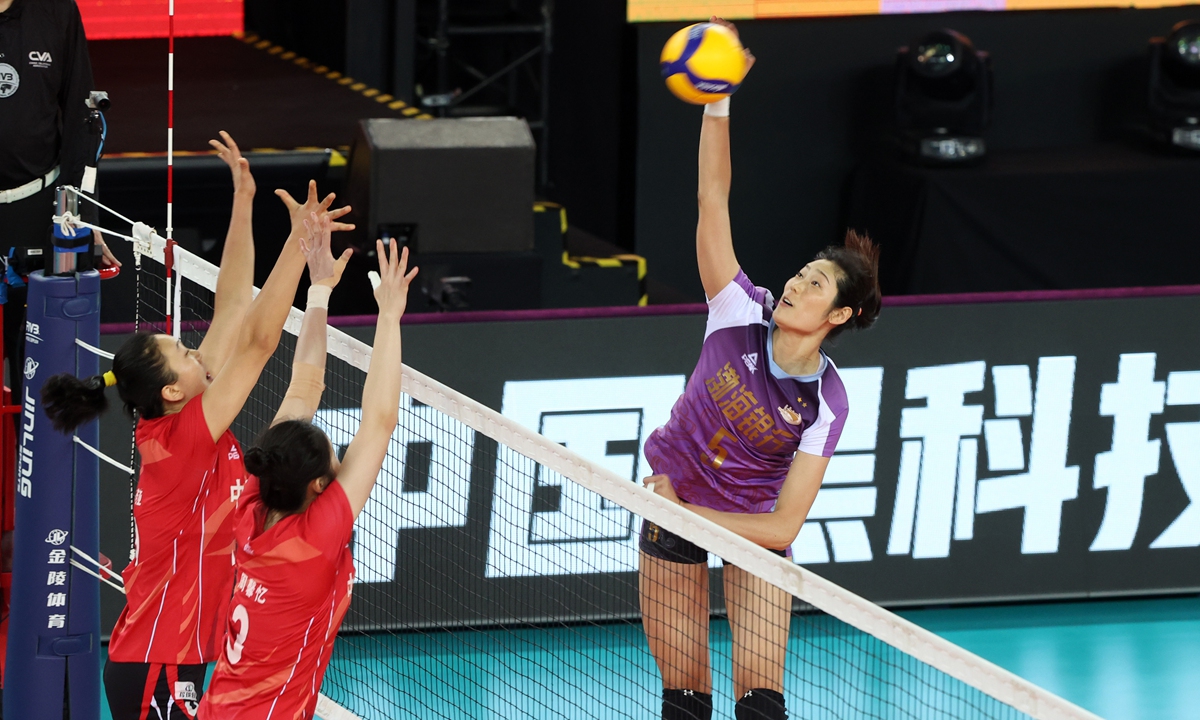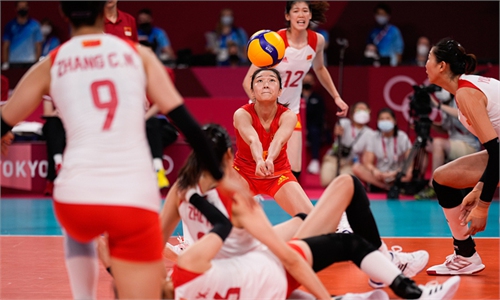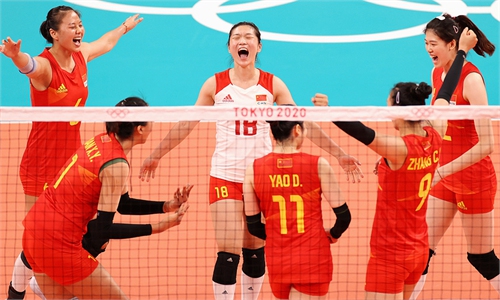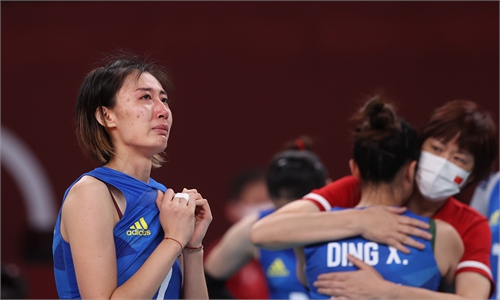
Zhu Ting Photo: VCG
Chinese women's volleyball star player Zhu Ting said on Thursday that she has reported to police some recent disinformation about her circulating on the internet, and that she may appeal to the court.
The Chinese women's volleyball superstar and captain posted a notarization certificate and a police report receipt from the Shanghai Public Security Bureau on her Weibo account that read, "Notarized, fixed evidence. Reported to police. Requesting criminal accountability. Next stop, People's Court."
The content of the police receipt shows that Zhu has entrusted her lawyer to report the case over the matter that "between July 19 and August 2, some netizens on the internet spread rumors about Zhu and deliberately smeared her." The Public Security Bureau has taken the case.
Zhu is a much-loved Chinese sports icon whose role as the number one spiker helped the Chinese women's volleyball team win the 2016 Rio Olympics and led the team to garner a number of important laurels.
However, at the just concluded Tokyo Olympics, Zhu failed to lead the Chinese women's volleyball team to reach the quarterfinals due to an injury.
Since then, rumors about Zhu have been widely spreading on social media, involving Zhu's discord with teammates and that she accepted private commercial endorsements.
Many netizens strongly supported Zhu under the post and denounced online rumors.
One netizen wrote, "The internet is not a place outside the law. We support Zhu Ting to defend her rights according to the law and protect herself with the law."
Yan Yiming, a human rights protection lawyer based in Shanghai, told the Global Times on Thursday that the netizens' cyber violence is "highly likely" to constitute as a crime, among which defamation and insults are two common forms of crime.
"According to the law, insulting others publicly will result in a sentence of a fixed-term imprisonment of not more than 3 years if the circumstances are serious," said Yan. He also asked netizens to respect Chinese athletes.
"Chinese women's volleyball team's failure in the Tokyo Olympic Games cannot be blamed on Zhu only," Yan added.
Liu Hailong, an associate professor at the School of Journalism and Communication of Renmin University of China, told the Global Times on Thursday that the netizens who blame Zhu through cyber bullying might be her "beloved fans."
"Zhu might be their idol, but her performance at the Tokyo Olympic Games did not live up to her fans' anticipation, causing them to blame her on social media and even become abusive," Liu analyzed.
But Liu did not think using legal rights protection can solve the problem.
"Public celebrities should have the psychological expectation of taking risks in public opinion. Defending rights with cold laws may make her fans dare not talk about her anymore, while making clarifications and explanations online may be a more appropriate solution," he said.
Zhu is not the only athlete who has been subjected to online violence for unsatisfactory performances. After shooter Wang Luyao failed in the preliminaries and posted a selfie on Sina Weibo saying that she had "chickened out," she was attacked by some netizens. Some even said that Wang "does not deserve to represent her country." Wang later deleted the post.
Responding to extreme emotional outbursts of netizens, many people immediately voiced strong support for Wang.
Previously, dozens of Weibo accounts were banned for denigrating Olympic athletes.




